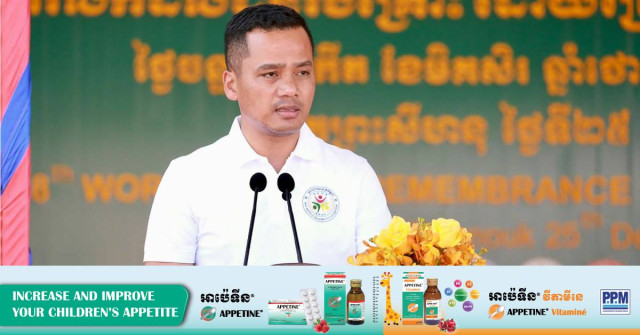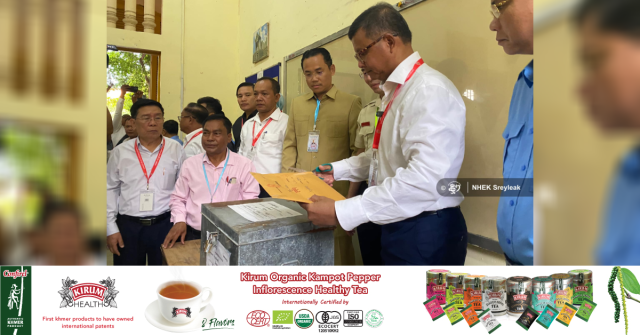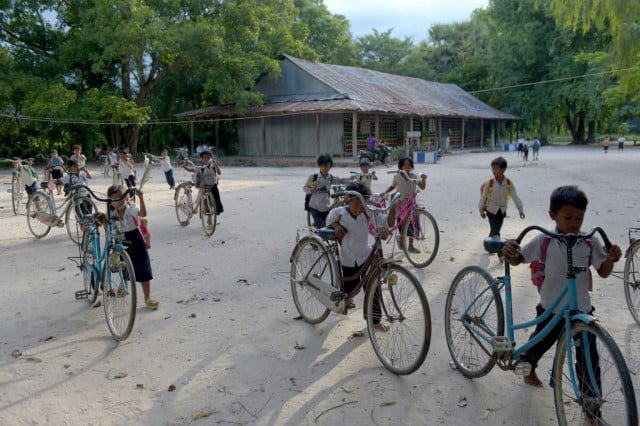Interior Ministry to Blacklist Hit-and-Run Suspects

- By Meng Seavmey
- December 26, 2023 9:50 AM
PHNOM PENH – Interior Minister Sar Sokha has warned that hit-and-run suspects will be blacklisted if they don’t turn themselves in after causing an accident. A rank of measures has been decided upon to sanction to track their wrongdoings in a record and affect the suspects’ careers. Sanctions will be applied “next year,” the minister said.
Hit-and-run suspects will be banned from flying out of the country and will see their passports invalidated, Sokha said at the 18th World Day of Remembrance for Road Traffic Victims on Dec. 25.
Job applications might also be rejected in the future, with a new system being implemented to allow public institutions and the private sector to check upon applicants’ backgrounds and records, the minister announced without providing further details.
“Sooner or later, [suspects] will be found, so better turn yourself in rather than ruin your future later,” he added.
The minister also warned that any police officer who intends to run away after causing accidents or deaths will be dismissed from the police framework if they do not turn themselves in, setting an example for others.
“I have noticed that the drivers who caused the accidents could run away from the scene unless they are too drunk to continue. This is not a responsible act from a citizen,” he said.
The minister called on all relevant authorities and national police to be more aware of the traffic situation within their territory to ensure a sense of traffic safety.
“Running away after causing a traffic accident at midnight is a problem. But the fact that some suspects could run away from a crowded area while the police were already on the scene of the accident is a big deal. Some police are only there to be seen on duty,” Sokha added, stressing the lack of commitment of some police officers.
Last week, Prime Minister Hun Manet ordered the national police – regardless of their rank – to handcuff the suspects on the spot without having to wait for the commissioner’s order. This aims to stop the suspects from getting away.
The Interior Minister also urged truck drivers to stop putting stickers or curtains on their vehicle’s front windscreen because it blocks the view, which is also a big cause of traffic accidents.
These government orders follow a major wave of criticism of many drivers who caused traffic accidents and left the scene, despite killing people on the spot. Citizens are demanding stricter actions against the suspects.
On Dec. 14, the Phnom Penh Municipal Court ordered a man to turn himself in following a deadly car accident caused by a Jeep Overland killing another man on a motorcycle in Phnom Penh. The victim’s family has refused the 1000-dollar compensation offered by the offender’s family, in a move to try to settle the case out of the court.
The Justice Ministry issued an arrest warrant on Dec. 19 to bring the suspect to the prosecutor's office if he refused to hand himself in before Jan. 9. The man turned himself in on Dec. 23, while the national police were filing the case for the Municipal Court.
Interior Minister Sar Sokha said penalties will be stepped up and fines for traffic offenses will be increased in 2024, arguing that “a lot of education [on road safety] has already been done, but with no results.”
In 2022, more than 1,700 people were killed on Cambodia’s road, a 14 percent increase compared to 2021. Nearly 30,000 road accidents happened, injuring over 4,000 people.















